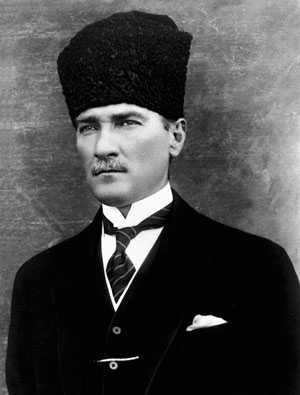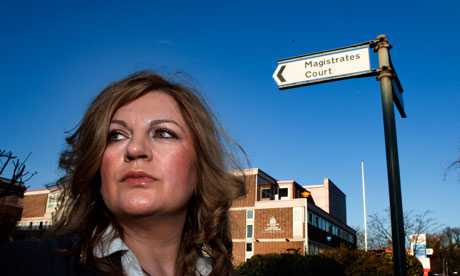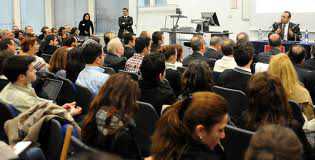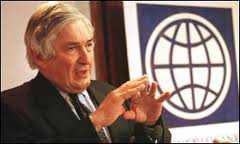Help us decide which five military leaders are represented at Enemy Commanders: Britain’s Greatest Foes, a celebrity speaker event on Saturday 14 April 2012. Find out more about the shortlist and how to place your vote.
- Akbar Khan
- Andrew Jackson
- Eduard Totleben
- Erwin Rommel
- George Washington
- James Fitzjames, Duke of Berwick
- Louis Botha
- Maurice de Saxe
- Michael Collins
- Mustafa Kemal Atatürk
- Napoleon Bonaparte
- Ntshingwayo kaMahole
- Osman Digna
- Paul von Hindenburg
- Paul von Lettow-Vorbeck
- Rani of Jhansi
- Riwha Titokowaru
- Santiago de Liniers
- Tipu Sultan
- Tomoyuki Yamashita
 Mustafa Kemal Atatürk
Mustafa Kemal Atatürk
Dates: 1881-1938
“I don’t order you to fight, I order you to die. In the time it takes us to die, other troops and commanders can come and take our places.”
Mustafa Kemal at Gallipoli, April 1915
A seasoned veteran of the Balkan Wars, Kemal fought a tenacious defensive campaign at Gallipoli in 1915 which forced the Allied invasion force to withdraw. He would later become the ‘Father of modern Turkey’.
Register your vote by clicking the plus (+) symbol above, or skip to the comments section below.
Mustafa Kemal was born in Salonika and began his military career as an Ottoman Army cadet, studying at the Harbiye military college in Istanbul from 1899 until 1905. His initial service was with a cavalry regiment in Syria. During this period he joined the reformist Motherland and Liberty secret society in opposition to Sultan Abd al Hamid II. Although he believed in the separation of the military from politics, Kemal was a member of the Committee of Union and Progress and played a role in the ‘Young Turk’ Revolution that ended the sultan’s absolutist rule and restored parliament.
Kemal served with distinction in Tripolitania (Libya) during the Italo-Turkish War (1911-12), repelling the Italians at Tobruk and successfully defending Derna despite being wounded in an air raid. During the Balkan Wars (1912-13), he took part in the Turkish amphibious landing in Thrace and the capture of Erdine from the Bulgarians. In 1913 he was made Ottoman military attaché to all Balkan states and promoted to colonel.
Despite opposing Ottoman involvement in the First World War, once it had started he threw himself wholeheartedly into the conflict. During the Dardanelles campaign Kemal commanded the 19th Division before being made chief of staff of the 5th Army. He displayed great leadership and tactical acumen, reacting immediately to the Allied landing at Anzac Cove in April 1915. He launched successful counter-attacks against the Australians and New Zealanders as they attempted to take the high ground surrounding the landing areas. By nightfall on 25 April they had suffered over 2,000 casualties and remained stuck on the beaches.
In the weeks that followed he led his men at many of the campaign’s fiercest engagements, including the Battle of Sari Bair (6-21 August), the Battle of Chunuk Bair at Anzac (7-19 August) and the offensive from Sulva at Scimtar Hill (21 August). Following these battles he was granted the title of ‘Pasha’. Personally brave, Kemal expected the same from his men, declaring: ‘I don’t order you to fight, I order you to die. In the time it takes us to die, other troops and commanders can come and take our places.’
Following these triumphs, Kemal was sent to command XVI Corps on the eastern Anatolian front. In August 1916 he launched a successful counter-offensive against the Russians, capturing Bitlis and Mus. When the Russian Army of the Caucasus collapsed during the Revolution of 1917, Kemal was transferred to Palestine. He was given command of the 7th Army, but following the loss of Baghdad, he became increasingly fearful that the war was lost.
He also expressed anger at a government that was unable to supply his men with adequate weapons and supplies, and resented the transfer of supreme command from Turkish generals to the German Erich von Falkenhayn and Otto Liman von Sanders. After resigning his command in protest he accompanied the Crown Prince to Germany, visiting the Western Front and concluding that the Central Powers were defeated. Restored to his command by the new sultan, Mehed VI, he ended the war in Aleppo after his army was forced to retreat following the Battle of Megiddo.
With the Ottoman capital occupied by the Allies, most of the Balkans gone and Turkey bereft of its Arab provinces, Kemal felt a personal duty to fight for the integrity of the remaining Turkish heartland of Anatolia. Posted in 1919 as inspector general of the army in northern Anatolia, he quickly started to act independently, resigning from the Ottoman Army and helping to arouse nationalist feeling in the aftermath of the Greek landing at Smyrna. The First Great National Assembly at Ankara, now a rival power bloc to the Ottoman government in Istanbul, gathered in spring 1920 with Kemal as speaker. It later elected him president.
In 1921 the Greeks advanced from Smyrna, but were held before Ankara at the Battle of Sakarya in August-September. Following this success, Kemal was made commander-in-chief with the rank of marshal. He went on the offensive the following year, capturing Smyrna in September and forcing the Greeks to evacuate Anatolia.
A skilled statesmen as well as a great soldier, at the subsequent Treaty of Lausanne (1923) Kemal was given a Turkey in Anatolia free of foreign troops and full control of the straits. Anger at the weakness and defeatism of the sultan in Istanbul led him to work for the abolition of the sultanate in 1922, the proclamation of a republic in 1923, and the abolition of the caliphate in 1924. As ‘Atatürk’ (Father of the Turkish Nation), Kemal steered Turkey through a period of turmoil, but it emerged as a modern secular state, with a neutral foreign policy, planned economy, westernised education system and a strong army.
Hard in battle, Kemal was nevertheless gracious to his enemies, later writing of the Allied soldiers killed at Gallipoli: ‘Those heroes that shed their blood and lost their lives… You are now lying in the soil of a friendly country. Therefore rest in peace. There is no difference between the Johnnies and the Mehmets to us where they lie side by side now here in this country of ours… you, the mothers, who sent their sons from faraway countries wipe away your tears; your sons are now lying in our bosom and are in peace. After having lost their lives on this land. They have become our sons as well.’





